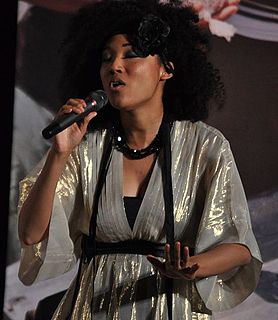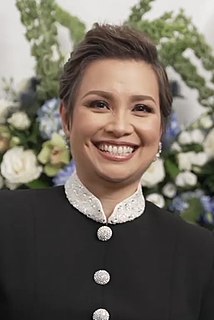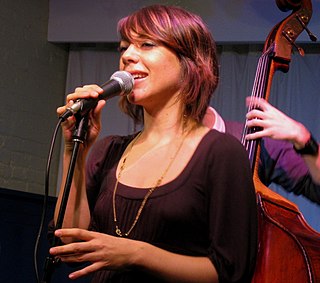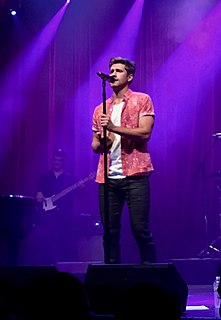A Quote by Judith Hill
'The Voice' is not just a singing competition. It really comes down to how you come off as a person and how you connect with America with your story, and being relatable to people.
Related Quotes
But I'm pretty lucky with my voice. When I first started touring I went to see a woman to give me some coaching on how not to lose my voice. And she was just saying really your voice is a muscle so if you're using it all the time you should actually come back from tour with a stronger voice than you left with. And that's really how I find it.
In old interviews I was still worried about being judged. I think my life was about how can I keep myself in control. How can I just get through this and be okay? And, you know, you turn the corner. You realize that you're not imprisoned by your life or your circumstances or your genetics or anything. I really believe that we all have the ability to come out of our story. But you have to tell your story first in order to come out of it.
I have a theory that, for people of color or others who have been cut out of the master narrative, just telling your personal survival tale, your story, is civic engagement. It is a kind of political performance and is really crucial in that storytelling is how the writers connect with people and change. It's how we collect and add to and complicate the master narrative.
I think I'm fascinated with history and - just in general. And I'm always interested in how did - how did this come to be? Why is this the way it is? And even singing classical voice, I quickly became more and more interested with early music, baroque voice. And that became an obsession to me - just figuring out how - who are the ancestors of whatever it is.
You want to have a feeling when you sing that you just love singing; you love the feeling of singing, and you love this feeling of this voice coming out of your body into this world. It's about really getting that most beautiful, pure, centered tone, thinking about the story of each song and the lyrics, and connecting your own life to that story.
You either hear the story and you're curious, and you're sort of sympathetic, or you think, "Ugh, how horrible." That's dehumanizing. How about we take that and turn Christine Chubbuck into a person and it's not about the final act, it's about her life. I felt that really strongly, and I felt a sort of deep sympathy with her. It's also why I do what I do. I want to try to make difficult people somehow relatable.
I had a teacher who stressed for me the importance of diction in terms of... I want to be very careful about how I say this... in terms of supporting one's voice when one is singing. In other words, if you hold on to your words, your voice will pull through for you when you're singing. So be true to your vowels.




































